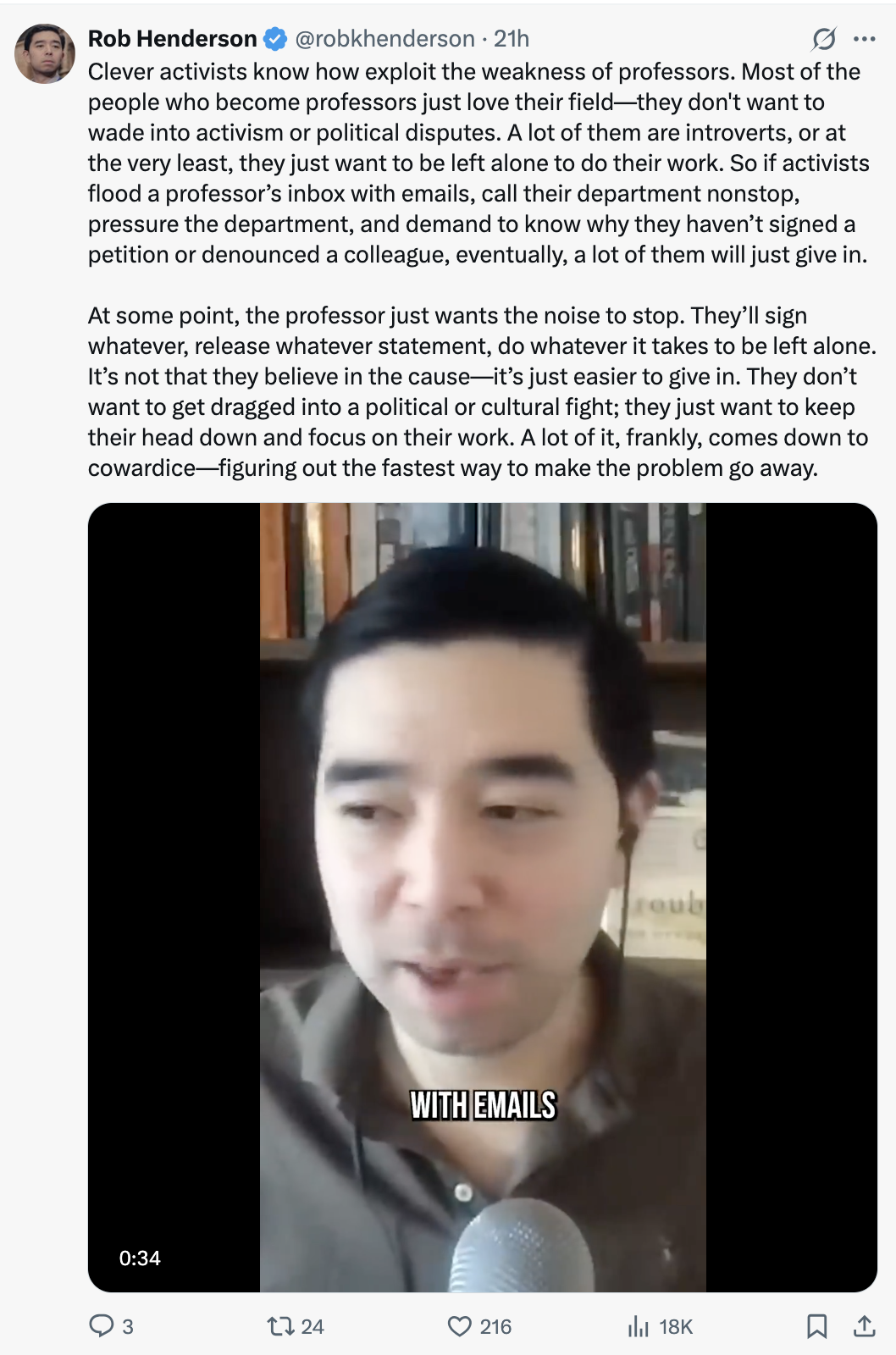About Douglas Murray, “Experts” and War
I've often enjoyed listening to Douglas Murray, but he seems to have gone off the rails for two reasons: A) His enthusiasm for war as a solution to complex disputes and B) His wish to control the free flow of information between other people based on his claim that we need to shut up and rely on "experts," by which I assume he means credentialed experts.
In this segment, Joe Rogan and Dave Smith dismantle Murray with simple questions. Watch him dart to a new topic whenever he is challenged.
I would agree with Saagar Enjeti's description:
And here's a glaring irony pointed out by Enjeti:
As Dave Smith points out, during the pandemic, the "experts" got almost everything wrong. Murray has no response. The COVID error would include many of the following:
Here's a bigger irony. If only "experts" should weigh in on complex and important topics of the day, what does that say about democracy? Most of us voters are unwashed masses, uncredentialed in most things, yet we are asked to cast votes that will determine the fate of our country. Murray's attitude can be seen playing out in the EU (and elsewhere, including the US), where people are increasingly being denied the chance to vote for the candidates they support.
I'll end with this post by Mike Benz:









